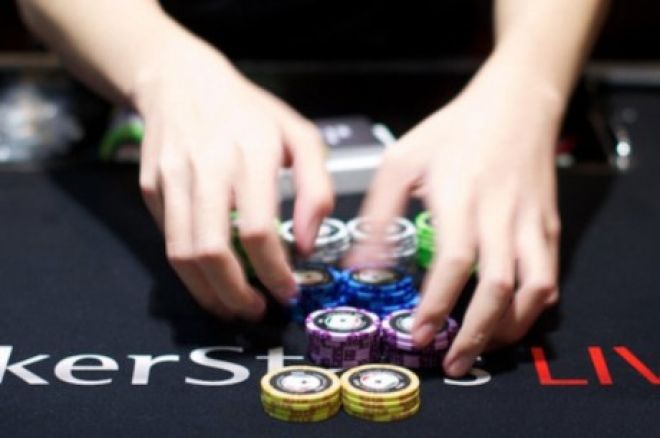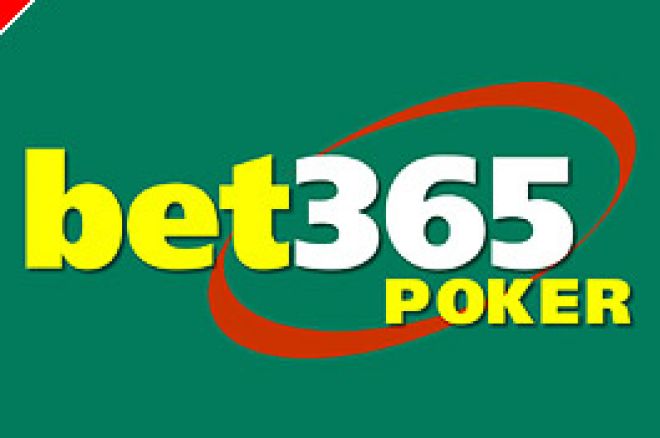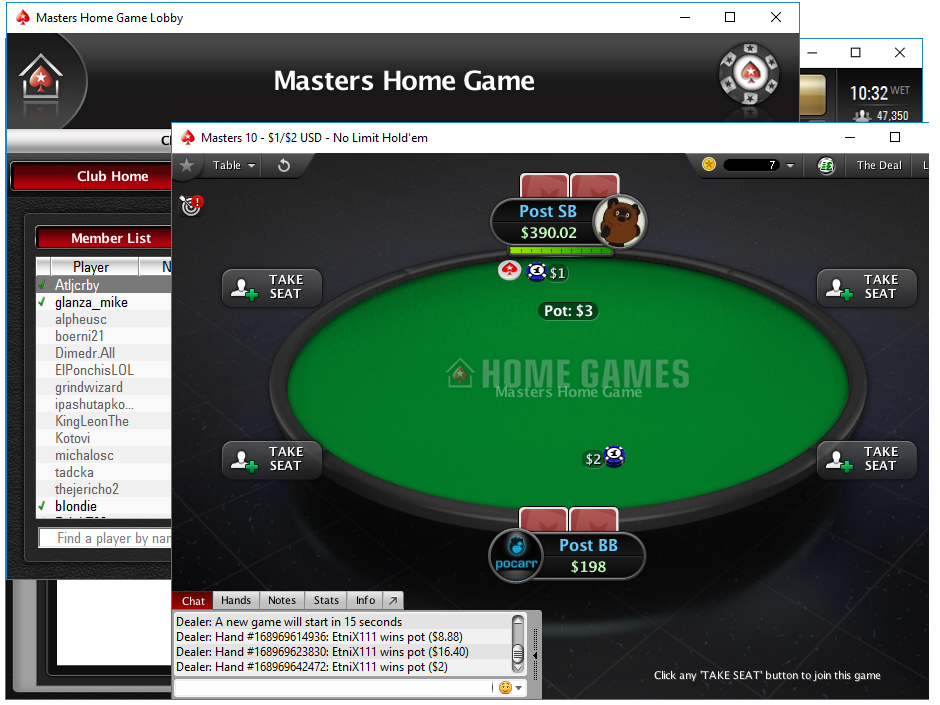Raked Poker Game
- Poker Card Games Free Download
- What Is A Raked Poker Game
- Governor Of Poker
- Rake Poker Cash Games
- Poker Game Free
- Poker Games Play Free
Poker Table Rake The rake is defined below for each game which we spread. We do not charge rake if the hand ends on the first betting round (before the flop in Hold’em or Omaha, before Fourth Street in Stud variants, or before the Draw in Draw variants). Rake Impact in live poker games. The Rake in live poker games usually exceeds the amount of Rake being taken in online poker games. A) Tipping the dealer. Expenses increase as there is a common habit to tip the dealer. Tipping the dealer is quite common and a matter of a good etiquette. As host, 888poker.com applies a Commission Charge ('Rake') to each Poker game's Pot. 888poker.com's Real Money Tables will be Raked, in US Dollars, according to the following schedules.:.888poker.com reserves the right to reduce the rake on certain tables. Fixed Limit Rake.
Rake Structures. For all real money games, PlayNow.com poker room may take a rake from the pot at cash game tables or collect a fee for entering a tournament. Tournament Entry Fee. Multi table and Sit & Go: When registering to any real money tournament you may pay a fee to the poker room defined as a Tournament Entry Fee. Poker is a game between players, with the aid of the casino, whether it be a traditional or online, serving as a facilitator for the game. The casino doesn’t make any money from the player who wins the hand. They make their money in poker from the rake fee. Basically, without the rake, the poker room wouldn’t have a source of income.
Many players have strong opinions about the impact rake has on our no-limit hold'em earn rate. Since actual data is the best way to answer such a question, I gathered hand histories from Las Vegas $1/$2 and $2/$5 no-limit hold'em cash games. Overall, I analyzed nearly a thousand hands taken from four Las Vegas cardrooms at various times of the day and on various days of the week. There were differences among the cardrooms, but I will only summarize the averages here.
$1/$2 No-Limit Hold'em Rake
Stats for Las Vegas $1/$2 NLH games are summarized the first column below. This is based on a 10 percent rake, up to a maximum of $4, as long as there was a flop. A $1 jackpot drop was also taken whenever a rake was taken. A total of 71 percent of these hands were raked, so there was also a jackpot drop 71 percent of the time.

| $1/$2 NLH: $4 Rake | $1/$2 NLH: $5 Rake | $1/$2 NLH: $6 Rake | $2/$5 NLH: $4 Rake | |
|---|---|---|---|---|
| Rake: $ / Hand | 2.16 | 2.46 | 2.72 | 2.92 |
| Jackpot-1: $ / Hand | 0.71 | 0.71 | 0.71 | 0.85 |
| Jackpot-2: $ / Hand | 1.33 | 1.33 | 1.33 | 1.46 |
| Avg. Pot: $ / Hand | 50.39 | 50.09 | 49.83 | 153.10 |
| Est. Avg. Profit: $ / Hand | 33.26 | 33.06 | 32.89 | 101.05 |
| Equity Rake: $ / Hour | 9.86 | 11.22 | 12.40 | 13.99 |
The average rake was $2.164 per hand, the average number of players was 8.78 per hand, and the average dealing rate was 40 hands per hour with an auto-shuffler. Therefore, the average player won 4.56 hands per hour. Accordingly, the average amount of rake paid per player was $9.86 per hour. I call this the 'equity rake' for the game.
Equity rake is the average rake the players paid per hour. But individual players vary from this depending on their playing styles. For example, a tight player will play fewer hands and probably win fewer pots per hour, so his equity rake is probably smaller. Nevertheless, we can learn a lot about the impact rake has on our win rate by studying Mr. Average.
Let's consider Tom Terrific, an extremely good player earning $20 per hour. He would then make about $30 per hour if he could play without a rake. So rake takes an incredible 33 percent from Tom's pre-rake profit, a big factor in his earn rate.
Now let's consider Solid Sam, a decent player making $5 per hour. His pre-rake profit would be $15 per hour and his rake tax would be about 67 percent, double Tom's tax rate. Talk about a regressive tax!
Or we can consider Mediocre Max, a break-even player. His pre-rake profit would be $10 per hour and the rake tax takes all of it.
So the impact rake has on our profit depends on how profitable we are.
Suppose the bell curve distribution of win rates for all NLH cash game players is symmetrical. In that case, the average Vegas $1/$2 player loses nearly $10 per hour, or 5 big blinds per hour, entirely due to the rake. So Max must be much better than mediocre in just to break even. This clearly illustrates that we must be significantly better than average in order to overcome the rake.
$2/$5 No-Limit Hold'em Rake
One possible solution to our rake problem is to move up in stakes. The right-most column in the table shows the stats for Vegas $2/$5 NLH. We can see that in those games the average rake is about one-third higher in terms of dollars. But the average rake is much smaller in BBs or as a percentage of the average winning pot size.
Let's consider Tom Terrific again, Tom makes $40 per hour in $2/$5, slightly worse in BBs per hour than he earned playing $1/$2. He would then make about $54 per hour if he could play without a rake. So rake takes a somewhat lower 26 percent of his pre-rake profit.
Perhaps Solid Sam can make $10 per hour playing $2/$5. His pre-rake profit would be $24 per hour so his tax rate would be 58 percent, also slightly better than his $1/$2 tax rate.
Another way to look at this is that the average $1/$2 player loses about 5 BB per hour, but the average $2/$5 player loses about 2.8 BB per hour. In other words, the rake has a smaller impact on his $2/$5 win rate.
But let's not lose sight of the most important parameter here: our hourly win rate. A player who can eke out a small $1/$2 profit may well be a loser in the tougher $2/$5 game.
Increasing the Rake
A rake increase at our local cardroom would be depressing to contemplate. Some Vegas cardrooms already take a $5 rake, and it can be even larger in other parts of the world. When we see the impact this has on our bottom line, we may wish to reconsider which cardroom we frequent.
The middle columns in the table estimate the cost of a 10 percent rake, up to a maximum of $5 or $6. At first glance, these higher rakes don't seem to be too terrible, increasing the rake per hand only modestly. However, when we consider the equity rake per hour, the average player loses and additional $1.36 per hour for just a $1 maximum rake increase. A $2 rake increase leads to an additional $2.54 per hour average loss in win rate.
We might also expect that a winning player will win a dollar or two less per hour with these higher rakes. But it could be even worse if the higher cost induces the worst players to leave the game, enriching the quality of the remaining player pool.

Jackpots
Our situation seems even bleaker when we consider the jackpot drop. The Jackpot-1 stat refers to taking a one dollar jackpot drop whenever there is a rake drop. We can see that this averages to about $0.71 per hand, which would be an 'equity jackpot' cost of about $3.24 per hour. This is even worse when a second jackpot dollar drops when the pot reaches $30, the Jackpot-2 stat.
Altogether, these 'taxes' cost the average $1/$2 player about $13 per hour with a $1 jackpot drop, and it costs him about $16 per hour with a $2 jackpot drop.

However, nearly all of the jackpot money is returned to the players by way of jackpot payouts. So our equity jackpot losses should not be part of our thinking as long as we participate in all the jackpot opportunities the cardroom provides.
Suppose the cardroom has a $300,000 'freeroll' tournament requiring 120 hours of play to qualify. This tourney is funded by the jackpot drop from as many as 430,000 dealt hands, so it represents a big chunk of the total jackpot money collected.
If we play insufficient hours to qualify or don't bother to play the freeroll, our share of the prize pool can never come our way. For 1,000 entrants, that would be $300 per player for perhaps 100 hours of qualifying play. Clearly, many players have subsidized the tourney players. So when a cardroom offers such a freeroll, we should make sure we qualify and play, otherwise a big portion of our jackpot 'contribution' can never come back to us.
Another common example is 'Quad-flopper Tuesdays,' where a cardroom pays a $500 jackpot for flopping quads on a Tuesday. If we never play on Tuesday, we are subsidizing those players who do. By piling up our playing hours on days with special jackpot promotions, we are the players being subsidized by players who don't.

Finally, we sometimes see a progressive bad beat jackpot that can become a huge windfall for some lucky player. I don't favor the progressive jackpots because they can take a huge chunk out of the total jackpot pool, and that jackpot money usually leaves the poker community. Furthermore, a large jackpot will automatically trigger a federal income tax liability. Although the live-changing nature of a huge jackpot will induce many players to chase it, I would prefer to see smaller payouts. The $500 quad-flopper jackpot won by a poor player will likely reach our own stack eventually.
Conclusion
Rake and jackpot drops have a major impact on our low-stakes NLH profitability. They are the driving force dictating that few players are winners. But since we don't generally have the option to play rake-free, all we can do is to play where the rake is smallest. And we can minimize our jackpot tax by exploiting every opportunity to win a portion of the jackpot prize pool.
Steve Selbrede has been playing poker for 20 years and writing about it since 2012. He is the author of five books, The Statistics of Poker, Beat the Donks, Donkey Poker Volume 1: Preflop, Donkey Poker Volume 2: Postflop, and Donkey Poker Volume 3: Hand Reading.
Poker Card Games Free Download
Tags
cash game strategyno-limit hold’emrakewin ratebankroll managementjackpotslive poker
Limits & Rake
1. Betting Limits
In an effort to suit each and every Member, 888poker.com provides a variety of tables, designed for different numbers of players and featuring various table Betting Limits. 888poker.com offers tables with the following Lower Limit Stakes (minimum Betting Limit) and Higher Limit Stakes (maximum Betting Limit):
| Table Limit | |
|---|---|
| Lower Limit | Higher Limit |
| 1 ¢ | 2 ¢ |
| 2 ¢ | 4 ¢ |
| 3 ¢ | 6 ¢ |
| 5 ¢ | 10 ¢ |
| 12 ¢ | 25 ¢ |
| 25 ¢ | 50 ¢ |
| 50 ¢ | $1 |
| $1 | $2 |
| $2 | $4 |
| $3 | $6 |
| $5 | $10 |
| $10 | $20 |
| $15 | $30 |
| $30 | $60 |
| $50 | $100 |
| $100 | $200 |
| $250 | $500 |
2. The Antes
888poker.com's games of Seven Card Stud and Seven Card Stud Hi/Lo 8 or Better, follow the Ante schedule provided below:
| Table Betting Limit (Stakes) | Table Ante Amount | Table Bring-in Amount | Table Lower Limit Stake | Table Higher Limit Stake |
| 5¢/10¢ | 1¢ | 2¢ or 5¢ | 5¢ | 10¢ |
| 25¢/50¢ | 5¢ | 10¢ or 25¢ | 25¢ | 50¢ |
| 50¢/$1 | 5¢ | 25¢ or 50¢ | 50¢ | $1 |
| $1/$2 | 10¢ | 50¢ or $1 | $1 | $2 |
| $2/$4 | 25¢ | $1 or $2 | $2 | $4 |
| $3/$6 | 25¢ | $1 or $3 | $3 | $6 |
| $5/$10 | 50¢ | $2 or $5 | $5 | $10 |
| $10/$20 | $1 | $5 or $10 | $10 | $20 |
| $15/$30 | $2 | $5 or $15 | $15 | $30 |
| $30/$60 | $5 | $10 or $30 | $30 | $60 |
3. The Rake
As host, 888poker.com applies a Commission Charge ('Rake') to each Poker game's Pot. 888poker.com's Real Money Tables will be Raked, in US Dollars, according to the following schedules*:
*888poker.com reserves the right to reduce the rake on certain tables.
Fixed Limit Rake
Please scroll down for the Rake structure for No Limit and Pot Limit games.
Table Limit: 2¢-4¢ through 12¢-25¢
| No. of Players | Rake per Pot | MAX |
| 2-10 | 1¢ for each 20¢ in Pot | 50¢ |
Table Limit: 25¢-50¢ through $1-$2
| No. of Players | Rake per Pot | MAX |
| 2-10 | 1¢ for each 20¢ in Pot | $1 |
Table Limit: $2-$4 through $10-$20
| No. of Players | Rake per Pot | MAX |
| 2-3 | 1¢ for each 20¢ in Pot | $1 |
| 4-5 | 1¢ for each 20¢ in Pot | $2 |
| 6-10 | 1¢ for each 20¢ in Pot | $3 |
Table Limit: $15-$30 through $30-$60
| No. of Players | Rake per Pot | MAX |
| 2-3 | 1¢ for each 40¢ in Pot | $1 |
| 4-5 | 1¢ for each 40¢ in Pot | $2 |
| 6-10 | 1¢ for each 40¢ in Pot | $3 |
Table Limit: $50-$100
| No. of Players | Rake per Pot | MAX |
| 2-3 | $1 for each $100 in Pot | $2 |
| 4-10 | $1 for each $100 in Pot | $5 |
What Is A Raked Poker Game
Table Limit: $100/$200-$250/$500
| No. of Players | Rake per Pot | MAX |
| 2-10 | Flat rake of $3 | $3 |
Pot Limit and No Limit
Governor Of Poker
Table Limit:1¢/2¢
/2018 Images/June/redrake.jpg)
| No. of Players | Rake per Pot | MAX |
| 2 | 1¢ for each 16¢ in Pot | $1 |
| 3+ | 1¢ for each 16¢ in Pot | $4 |
Table Limit:2¢/4¢ - 3¢/6¢
| No. of Players | Rake per Pot | MAX |
| 2 | 1¢ for each 17¢ in Pot | $1 |
| 3+ | 1¢ for each 17¢ in Pot | $4 |
Table Limit:5¢/10¢-$1-$2 (excluding Jackpot)
| No. of Players | Rake per Pot | MAX |
| 2 | 1¢ for each 20¢ in Pot | $1 |
| 3+ | 1¢ for each 20¢ in Pot | $4 |
Table Limit: $2-$4 through $4-$8 (excluding Jackpot)
| No. of Players | Rake per Pot | MAX |
| 2 | 1¢ for each 20¢ in Pot | $1 |
| 3 | 1¢ for each 20¢ in Pot | $2.5 |
| 4-10 | 1¢ for each 20¢ in Pot | $4 |
Table Limit: $5/$10 through $25/$50
| No. of Players | Rake per Pot | MAX |
| 2-3 | 1¢ for each 20¢ in Pot | $2.5 |
| 4-10 | 1¢ for each 20¢ in Pot | $5 |
Table Limit: $50/$100-$500/$1,000
| No. of Players | Rake per Pot | MAX |
| 2-10 | 1¢ for each 20¢ in Pot | $5 |
NL Jackpot tables
Rake Poker Cash Games
| No. of Players | Rake per Pot | MAX |
| 2 | 1¢ for each 20¢ in Pot | $1 |
| 3 | 1¢ for each 20¢ in Pot | $2.5 |
| 4-10 | 1¢ for each 20¢ in Pot | $5 |
Poker Game Free
Enjoy the tables and Good Luck!
Poker Games Play Free
For assistance with this, or any of your other online gaming needs, please click here to contact us.